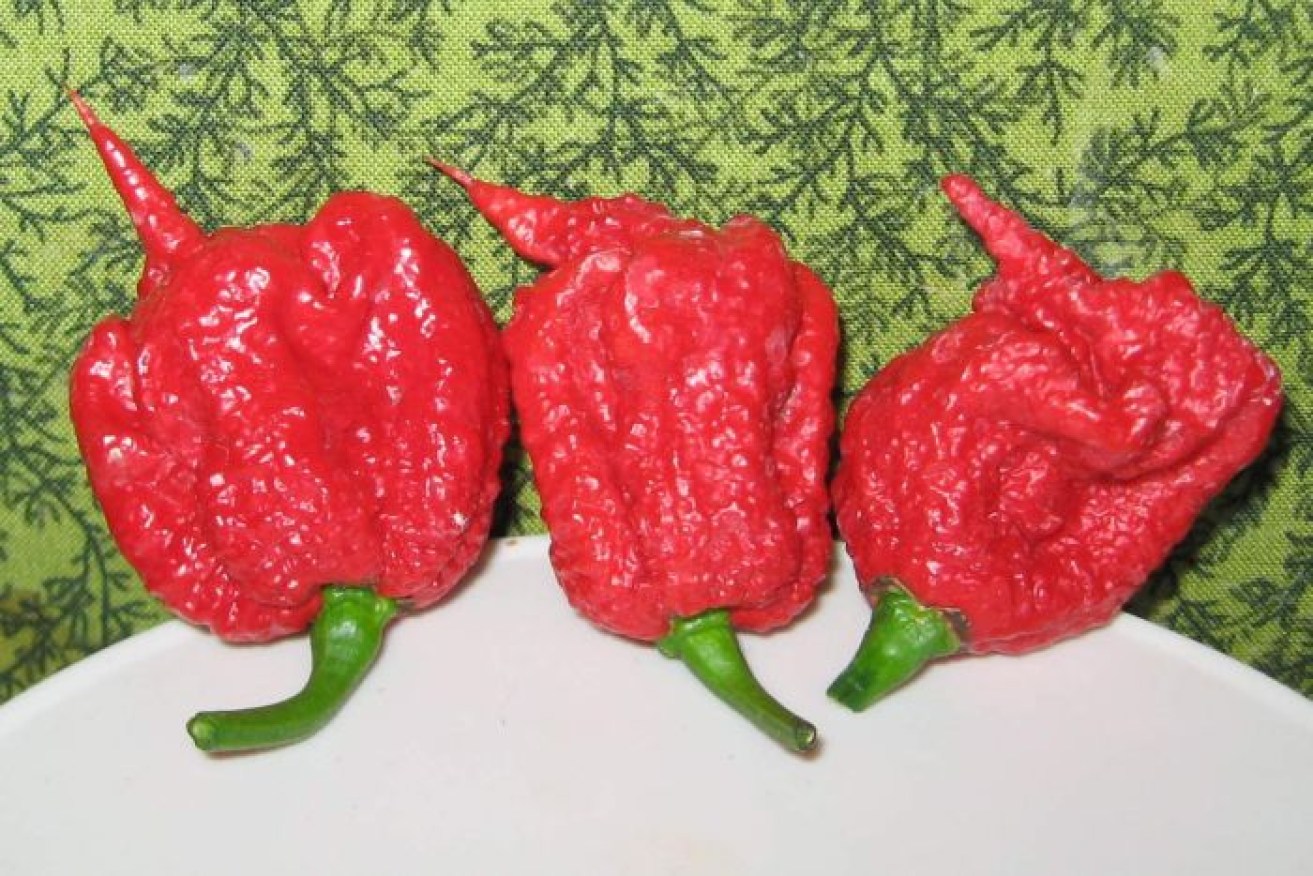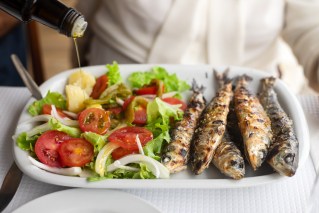Man struck by ‘thunderclap’ headaches after eating world’s hottest chilli

At full growth, one Carolina Reaper fits into half the palm of a hand. Photo: ABC/Wikipedia
One chilli lover in the US got more than he bargained for when he developed excruciating ‘thunderclap headaches’ after eating the world’s hottest chilli pepper.
Shortly after the 34-year-old man ate a Carolina Reaper chilli – which, by some estimates, is 500 times hotter than Tabasco sauce – at a chilli-eating competition, he was struck by crushingly painful headaches.
The cause?
Spasming blood vessels in his brain, likely due to the super hot pepper, according to a paper published in BMJ Case Reports on Tuesday.
Thunderclap what now?
Thunderclap headaches are relatively rare, and likely only strike those with a genetic predisposition, Royal Melbourne Hospital neurologist Mark Parsons said.
But if you get one, you’ll know about it.
“They’re really intense, like the worst headache ever, and maximal severity right at the onset,” Professor Parsons said.
“It can make you collapse or pass out with the intensity. It’s like being hit in the back of the head with a cricket bat.
“You’d usually need injectable painkillers at the hospital to relieve it. Your standard paracetamol or anti-inflammatory won’t help.”
These epic headaches can be triggered by a range of conditions, such as bleeding around the brain called a subarachnoid haemorrhage.
For some, they can strike during orgasm, Professor Parsons said: “Blood pressure rises and an artery ruptures.
“If you get a thunderclap headache during sex, you should probably seek medical attention.”
But the underlying cause isn’t always life-threatening.
Shrinking arteries
When the Carolina Reaper snacker went to the emergency room, brain scans ruled out bleeding.
What they did show was that several arteries had narrowed – a phenomenon called vasoconstriction or vasospasm.
This led to a diagnosis of “thunderclap headache secondary to reversible cerebral vasoconstriction syndrome [RCVS]”, the case study’s authors wrote.
RCVS doesn’t always have an obvious cause. It can be a reaction to certain medications, such as anti-depressants, and illicit drugs like ecstasy.
And vasoconstriction on its own shouldn’t be painful, Professor Parsons said. The agony is probably due to brain chemicals called neurotransmitters suddenly shifting, especially in the pain areas.
Anti-depressants, drugs and yes, orgasms, can give neurotransmitter levels a boost.
“If your brain floods with dopamine, an excitatory neurotransmitter, that probably triggers the vasospasm and pain pathways in the brain, if you’re predisposed,” Professor Parsons said.
So, should I stop eating hot chillies?
No, Professor Parsons said: “This is the first time it’s been reported from eating chilli, and a lot of people in a lot of cultures consume a lot of chilli, so it must be pretty rare.”
And as for the man in the case study, his thunderclap headaches went away on their own.
A brain scan five weeks later showed his arteries had returned to normal.
No mention of whether he resumed his competitive chilli-eating career, though.








